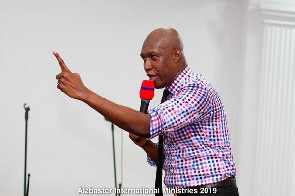The International Monetary Fund (IMF) has encouraged government to continue its firm stance on containing the wage bill within the budget constraints amidst a worsening employment regime and renewed pressure from labour unions.
The government earned positive reviews from the IMF after sticking to plans laid down by the Fund as necessary to address fiscal imbalances of the state and put the economy on a recovery path.
The IMF has thus rewarded government for good efforts in implementing the conditions that are expected to shore-up revenue and cut down on expenditure by releasing additional US$116.6million to government -- bringing to US$233.1million the total disbursements under the arrangement since it was approved in April this year.
The IMF, after its latest review of government’s progress in implementing conditions under the US$918million Extended Credit Facility programme, is confident the much-needed front-loaded fiscal consolidation effort will be sustained as government continues sticking to the net recruitment policy and freeze of employment into the public sector except health and education.
The Acting Chair and Deputy Managing Director of the Fund, Min Zhu said: “Implementation of the ECF-supported programme by the Ghanaian authorities has been broadly satisfactory, despite an unfavorable economic environment. In particular, the government’s fiscal consolidation efforts are on track and it is encouraging that the government decided to liberalise the prices of fuel products, which bodes well for expenditure control -- eliminating the need for fuel subsidies and the incurrence of arrears.
“The government should firmly continue with its fiscal consolidation efforts to fully restore macroeconomic stability and mitigate financing risk. In this regard, it is crucial to continue the policy of controlling the wage bill by adhering to the net hiring freeze, excluding for health care and education, while further implementing the payroll clean-up plan.
“The government should continue adhering to the domestic arrears clearance plan and avoid incurring any new arrears. Implementing structural reforms to strengthen expenditure control will support these efforts. At the same time, government should use the resulting fiscal space to enhance its social protection programmes to mitigate the potential impact of the fiscal consolidation on the poor.”
Government has in recent times faced labour agitations for improved working conditions of service, with many fearing it will succumb to pressure as the 2016 presidential and parliamentary elections are lurk.
According to the provisional fiscal figures released by the Finance Ministry, government spent a little above GH¢5billion on public sector wages and salaries for the first six months of this year, which was about GH¢107million less what it has budgeted for the period.
President, John Mahama has assured that the government will not break under pressure from labour groups to spend beyond the budget despite the threat to its electoral fortunes; a posture that will be fully tested when the 2016 budget is presented to Parliament in November before wage negotiations with labour is completed.
The IMF, which is reported to have pinned down next year’s elections as the greatest threat to the three-year Extended Credit Facility programme, has subsequently urged the government to assess the elections’ full cost and also complete all negotiations with labour within the country’s medium-term plans without sacrificing the need to enhance revenue.
Mr. Zhu explained: “To avoid the risk of fiscal overruns in connection with next year’s election, it is imperative to identify the full cost related to the elections as early as possible and provision for it in the 2016 budget, while ensuring that the fiscal targets will be achieved. It is also important that the ongoing wage negotiations result in a wage agreement consistent with the medium-term wage bill envelope. Further enhancing revenue performance will also be key for continued fiscal consolidation.
“The government’s medium-term debt management strategy is a welcome step to help reduce near-term financing risks. The externally-oriented financing envisaged in 2015 will help reduce pressure on the domestic debt market. However, the government should complement this strategy by striving to deepen the domestic debt market, as well as by seeking to borrow externally on concessional terms as much as possible.”
General News of Thursday, 3 September 2015
Source: B&FT













